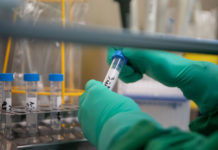Coronavirus, a new deadly virus, which can spread between humans, has started claiming lives.
First detected in Wuhan, China, in mid-December, the virus has left at least six people dead and 300 sick and has extended to some Asian countries.
But the fear is that some persons affected might travel to other world destinations.
Coronaviruses are a large group of viruses that are common among animals. In rare cases, they are what scientists call zoonotic, meaning they can be transmitted from animals to humans, according to the US Centers for Disease Control and Prevention.
Symptoms: The viruses can make people sick, usually with mild to moderate upper respiratory tract illness, similar to a common cold. Coronavirus symptoms include a runny nose, cough, sore throat, possibly a headache and maybe a fever.
For those with a weakened immune system, the elderly and the very young, there’s a chance the virus could cause a lower, and much more serious, respiratory tract illness like pneumonia or bronchitis.
How it spreads: Coronavirus can spread from human contact with animals and when someone comes into contact with the infected person’s secretions. Cough, sneeze or handshake could cause exposure.
The virus can also be transmitted by touching something an infected person has touched and then touching your mouth, nose or eyes. Caregivers can sometimes be exposed by handling a patient’s waste.
Currently, there is no specific treatment. Symptoms will go away on their own in some cases. Doctors can relieve symptoms by prescribing a pain or fever medication. A room humidifier or a hot shower can help with a sore throat or cough.
Prevention and Treatment: Plenty of fluids, rest and sleep. Currently, there is no vaccine to protect against the virus but you can reduce the risk of infection by avoiding sick people. Avoid touching your eyes, nose and mouth after contact with such persons. Contact a doctor if you do.
The World Health Organisation (WHO) and other health bodies have advised everyone to wash their hands often with soap and water. Persons in affected areas have also been urged to wear face masks.






